Welcome to the World Cup of Direct Democracy
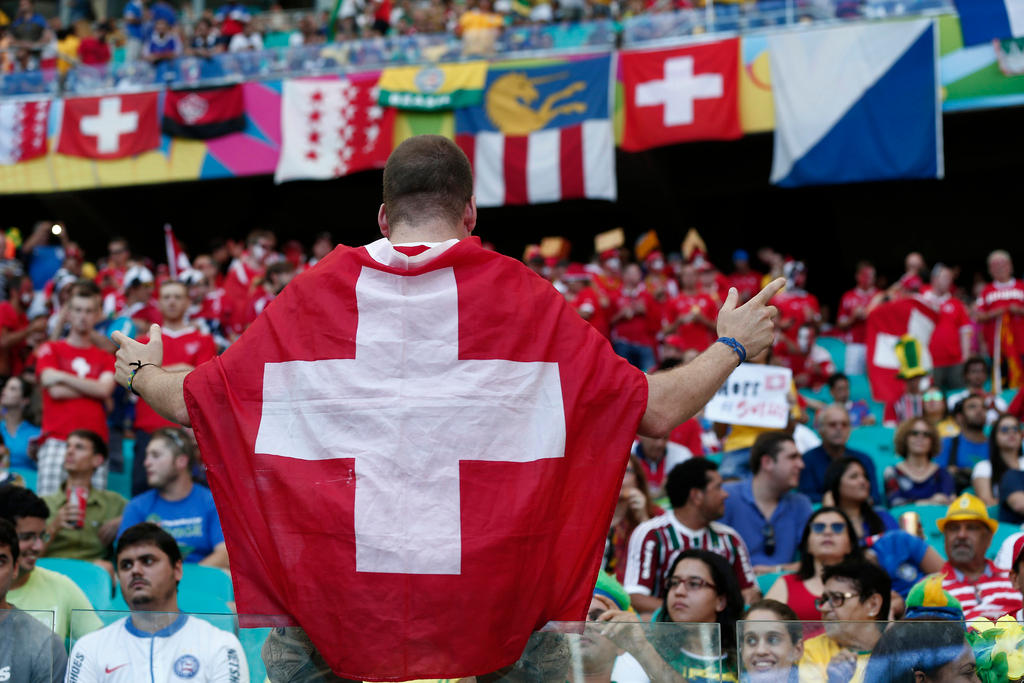
What if the World Cup were decided not by playing football but by the quality of each nation’s direct democracy?
The 32 teamsExternal link which qualified for the tournament currently underway in Russia did so on very different merits from what counts in the World Cup of Direct Democracy. This tournament is decided by free and fair elections, the rule of law, and comprehensive forms of participatory and direct democracy. Here is how such a contest would play out among the 32 countries, through eight groups and a 16-team playoff.
Group A: The Beauty and the Beasts
Uruguay has been a pioneering and longstanding practitioner of direct democracy since the early 20th century. But who wins second place? The far-from-democratic Russia, with a nod to the well-drafted-if-little-used Soviet referendum tool, noses out the even less democratic countries of Egypt and Saudi Arabia. {1. Uruguay, 2. Russia, 3. Egypt, 4. Saudi Arabia}
Group B: A Regional Contest with a Guest
Three neighbouring countries battle it out here, with Portugal and its strong democratic tradition pipping Spain, with a growing direct democracy sullied by the problematic Catalonian referendum, and Morocco, which has sought to build some democratic tools. Iran is a distant fourth. {1. Portugal, 2. Spain, 3. Morocco, 4. Iran}
Group C: Globalist Fight of Monarchists and Republicans
The old kingdom of Denmark, which has embraced participation, wins the group while the very democratic Australia, somewhat ambivalent about direct democracy, takes second spot. France, with its commitment to imperial republicanism, is a distant third, while Peru, despite a history of recalling local mayors, finishes last. {1. Denmark, 2. Australia, 3. France, 4. Peru}
Group D: Vikings Ahead, Again
Iceland’s democratic history and efforts to develop a highly participatory constitution teaches some lessons to competitors from Europe, South America and Africa. Argentina, with strong elections infrastructure, grabs second. {1. Iceland, 2. Argentina, 3. Croatia, 4. Nigeria}
Group E: Winning like Clockwork
Brazil was a favourite for its pioneering participatory budgeting, but the country has lost its democratic edge. So the more robust democracy of Costa Rica beats it out for second. Switzerland, the world’s most experienced direct democracy, dominates the field. {1. Switzerland, 2. Costa Rica, 3. Brazil, 4. Serbia}
Group F: The Group of Death
Wow, this tournament’s most competitive group goes to Angela Merkel’s country, which has seen the robust spread of direct democracy to all 16 states over the past 30 years. Mexico, with strong participatory processes that are now being used, particularly on environmental issues, narrowly beats out two countries that have been advancing their democracies, from Stockholm to Seoul. {1. Germany, 2. Mexico, 3. Sweden, 4. South Korea}
Group G: The Arab Spring Wonder Boy
Tunisia, the only democracy still left from the Arab Spring, has had its struggles, but its unmistakable progress in building a new democracy, including with robust local participation, gave it the victory in this group over two European monarchies and the host nation of an important inter-ocean channel. {1. Tunisia, 2. Belgium, 3. England, 4. Panama}
Group H: First a Nobel prize, then the World Cup
Colombia’s peace treaty – and the Nobel Prize it garnered – made it the winner here. Japan narrowly takes second over two other electoral democracies with autocratic tendencies. {1. Colombia, 2. Japan, 3. Poland, 4. Senegal}
The first two finishers in each of the eight groups advance to the knockout second round.
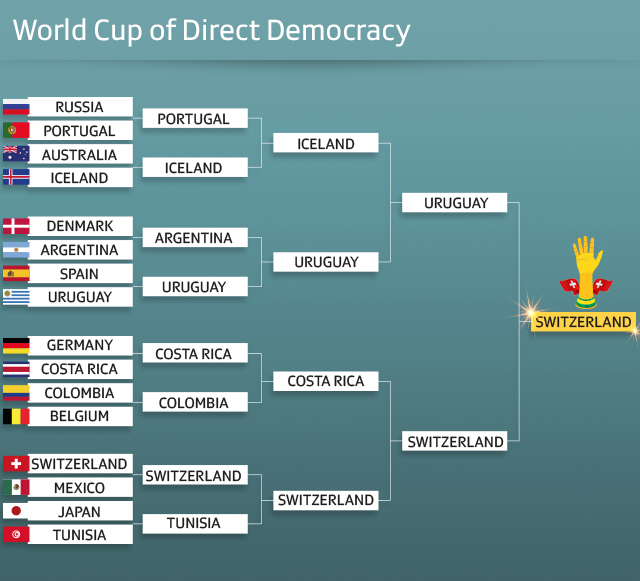
This Round of 16 sees clear victories (Portugal over Russia, and Switzerland over Mexico), but also surprise defeats for big democracies like Germany (which is dumped by the very democratic Costa Rica) and Australia (which loses to Iceland).
In the quarterfinals, Argentina is beaten by neighbouring direct democracy champion Uruguay. Iceland narrowly defeats Portugal, Costa Rica takes down the less democratically developed Colombia, and Switzerland beats a stubbornly democratic Tunisia.
In the semifinals, Uruguay eliminates the Vikings from Iceland in a hard-fought match in St Petersburg, while Switzerland tests the ground in the World Cup’s main stadium, the 81,000-seater Luzhniki, with a clear victory over Costa Rica.
That sets up a final in Moscow between Uruguay, the great small direct democratic country of the Americas, and its European counterpart, Switzerland.
It’s a tight match. Both countries sport comprehensive participatory and direct democratic rights and practices, and they score two goals each, pushing the match into extra time. But Switzerland’s front line of citizens gives that country the golden goal.
“In the end, our greater experience with initiatives and referendums made the difference,” says one of the Swiss players, a citizen born in Albania and now holding double citizenship.
Joe Mathews is the California columnist and innovation editor at Zócalo Public Square in Los Angeles and co-president of the Global Forum on Modern Direct Democracy.
Bruno Kaufmann is swissinfo.ch’s global democracy correspondent and started his journalistic career as a sports reporter at a local Swiss newspaper, covering the 1986 World Cup in Mexico.
Mathews and Kaufmann are co-chairing the 2018 Global Forum on Modern Direct DemocracyExternal link in Rome from September 26-29.
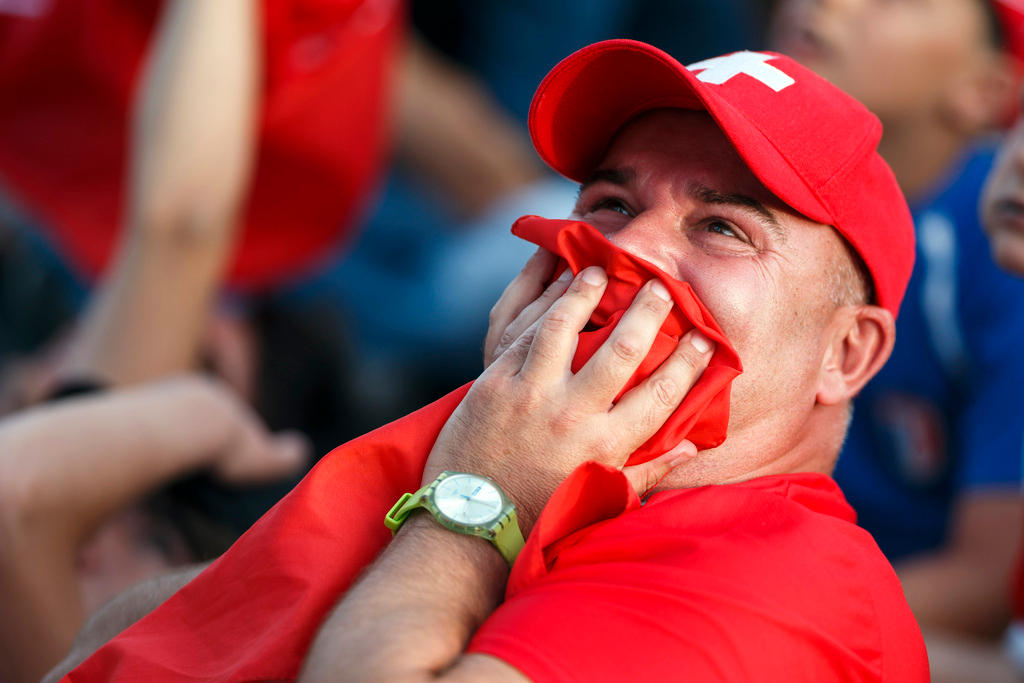
More
Will Switzerland win the football World Cup?

In compliance with the JTI standards
More: SWI swissinfo.ch certified by the Journalism Trust Initiative
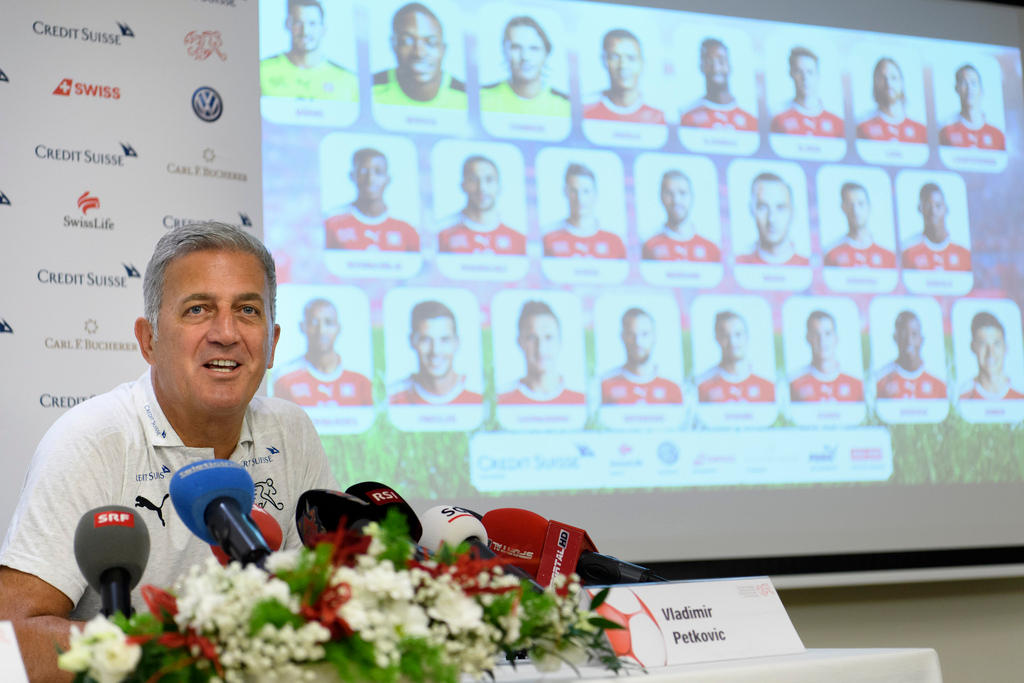
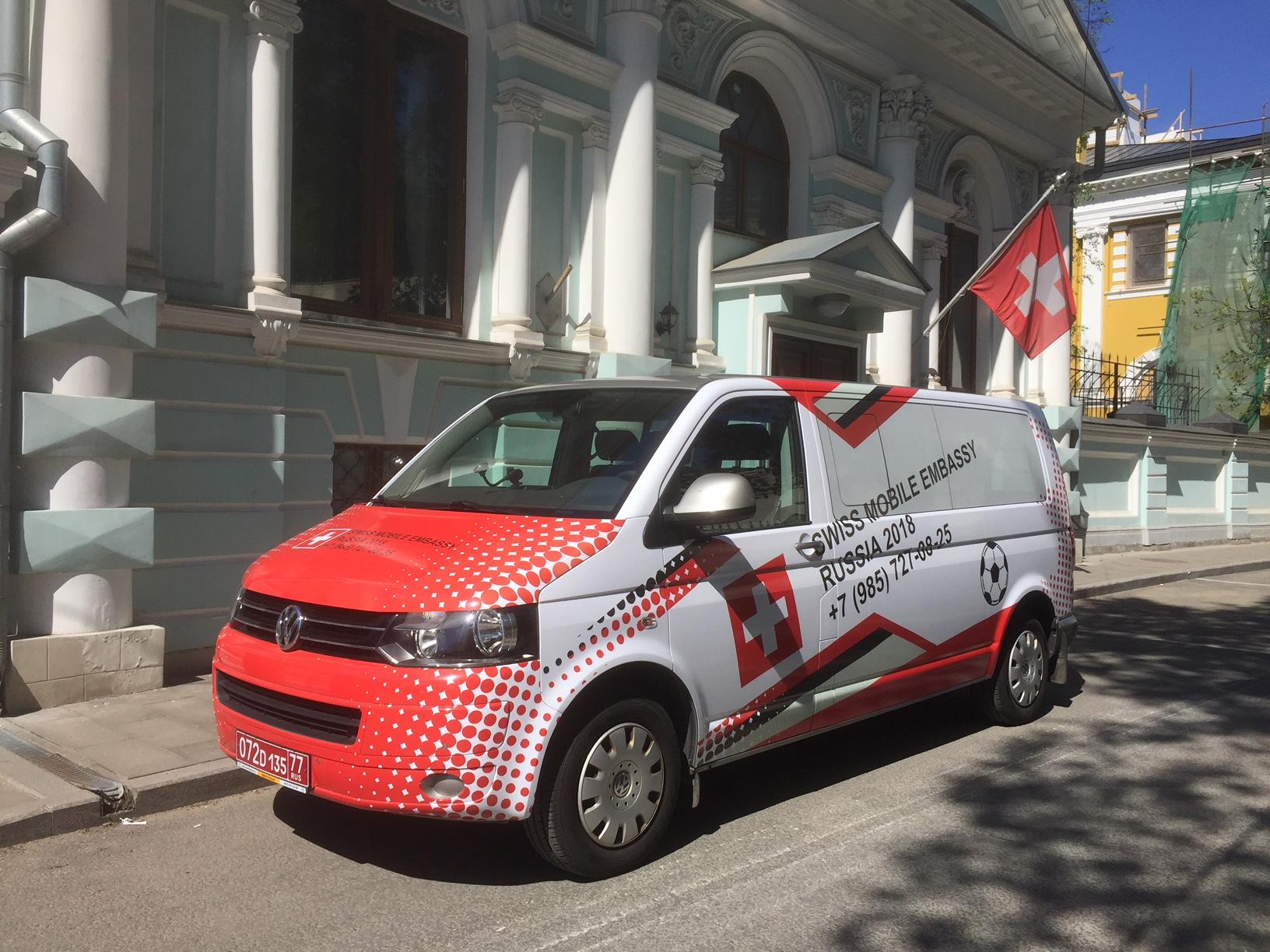
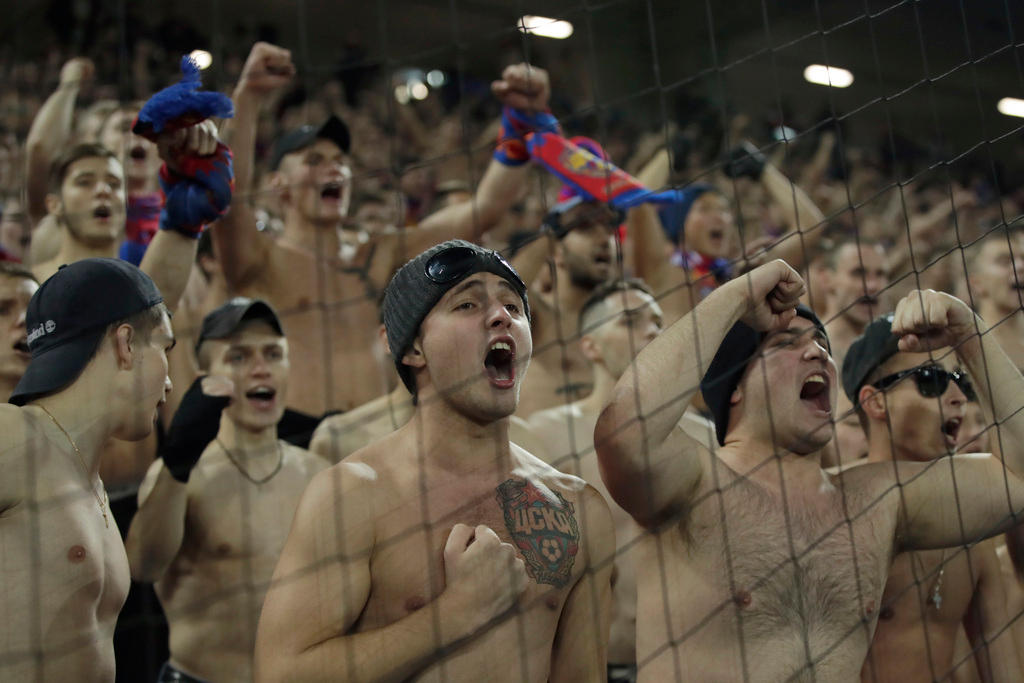
You can find an overview of ongoing debates with our journalists here. Please join us!
If you want to start a conversation about a topic raised in this article or want to report factual errors, email us at english@swissinfo.ch.